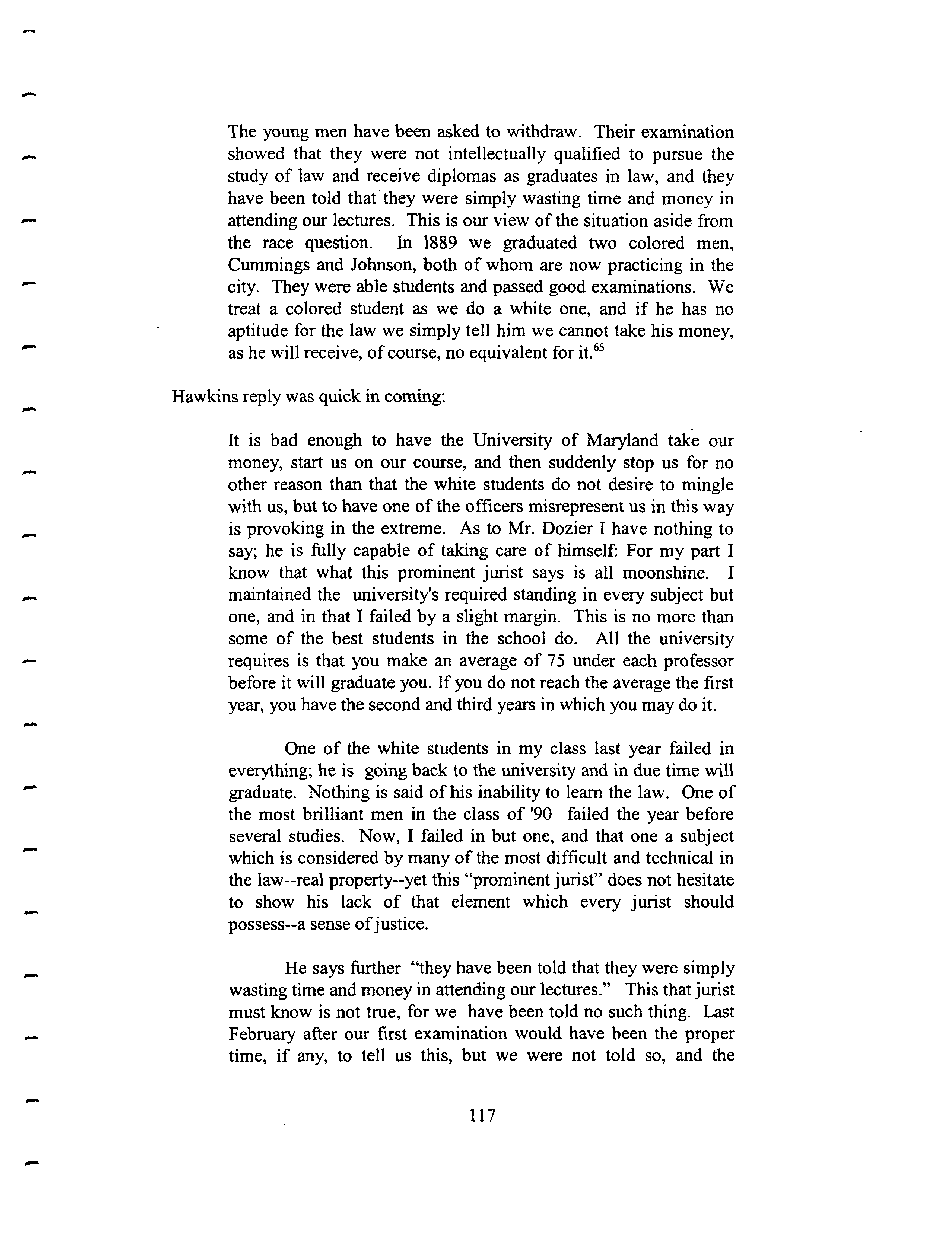|
The young men have been asked to withdraw. Their examination
showed that they were not intellectually qualified to pursue the
study of law and receive diplomas as graduates in law, and they
have been told that they were simply wasting time and money in
attending our lectures. This is our view of the situation aside from
the race question. In 1889 we graduated two colored men,
Cummings and Johnson, both of whom are now practicing in the
city. They were able students and passed good examinations. We
treat a colored student as we do a white one, and if he has no
aptitude for the law we simply tell him we cannot take his money,
as he will receive, of course, no equivalent for it.65
Hawkins reply was quick in coming:
It is bad enough to have the University of Maryland take our
money, start us on our course, and then suddenly stop us for no
other reason than that the white students do not desire to mingle
with us, but to have one of the officers misrepresent us in this way
is provoking in the extreme. As to Mr. Dozier I have nothing to
say; he is fully capable of taking care of himself: For my part I
know that what this prominent jurist says is all moonshine. I
maintained the university's required standing in every subject but
one, and in that I failed by a slight margin. This is no more than
some of the best students in the school do. All the university
requires is that you make an average of 75 under each professor
before it will graduate you. If you do not reach the average the first
year, you have the second and third years in which you may do it.
One of the white students in my class last year failed in
everything; he is going back to the university and in due time will
graduate. Nothing is said of his inability to learn the law. One of
the most brilliant men in the class of '90 failed the year before
several studies. Now, I failed in but one, and that one a subject
which is considered by many of the most difficult and technical in
the law—real property—yet this "prominent jurist" does not hesitate
to show his lack of that element which every jurist should
possess—a sense of justice.
He says further "they have been told that they were simply
wasting time and money in attending our lectures." This that jurist
must know is not true, for we have been told no such thing. Last
February after our first examination would have been the proper
time, if any, to tell us this, but we were not told so, and the
117
�
|

